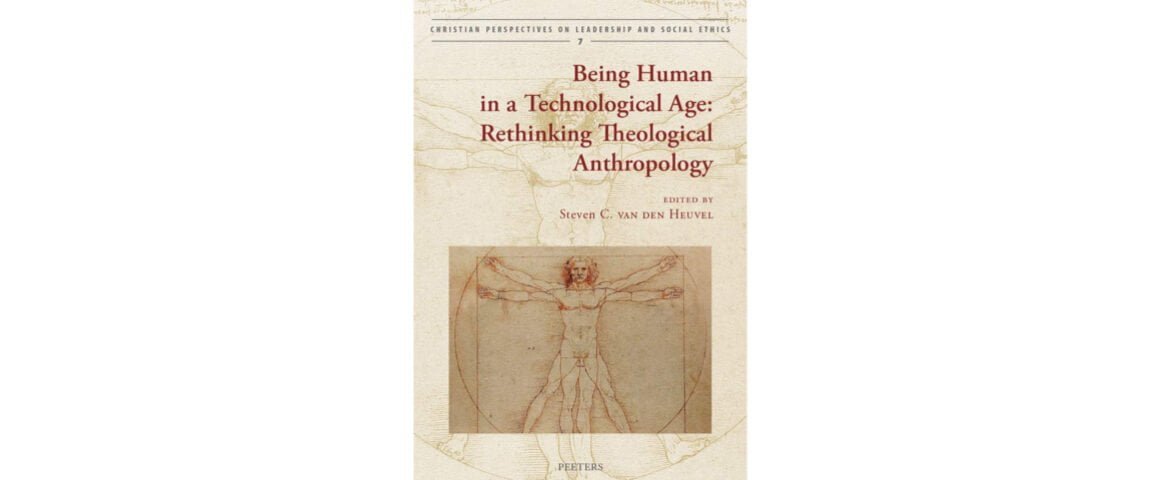Being Human in a Technological Age: Rethinking Theological Anthropology. Edited by Steven C. Van Den Heuvel. Leuven: Peeters Publishers, 2020. 274 pp. $70 (paper).
What does it mean to be a technologically advanced human?
Building on an ancient question: “what does it mean to be human?” the authors of Being Human in a Technological Age: Rethinking Theological Anthropology answer the question “what does it mean to be a technologically advanced human?” by considering it from a broad interdisciplinary religious perspective.
In many ways, the authors are still answering the age-old question about the meaning of humanity, but they do so by juxtaposing the notion of a human with technological innovation which has and continues to be a meaning shaper. For example, what does it mean if individual humans could somehow be uploaded to an interactive platform while their body decays in the grave (analogous to software v. hardware)? Or, if we could evolve rationality through genetic or neurological modification, would we become something more than what ancient religious thinkers thought of as images of God? Further, we all know that technology shapes our lives in important ways, but in what ways does it actually extend our identities?
Such questions have obvious import to how it is that we conceive of humans. Are humans rational beings at their core? Are humans souls or bodies? What is the significance of embodiment? Are we functionally machines of which the triggers can be tinkered with through empirical means?
Being a part of the Christian Perspectives on Leadership and Social Ethics series, the aim of Being Human in a Technological Age is to constructively situate the discussion in a way that thought leaders can pick up and engage with the topics in a responsible, rigorous, and imaginative way. By giving answers to the above questions, along with many others, the authors believe that there is something important to learn about humans in our technologically advanced age. Brian Brock expresses this well when he describes all the essays as beginning in popular conceptions of humanity that are motivated by some piece of scientific data. As Aristotle has taught us, popular views contain “partial truths” that are to be refined, clarified, and deepened through a dialogical process. According to Brock, the process of arriving at a better understanding of humanity begins in popular conceptions situated in a dialogue with other disciplines that portray different features of the human as the way light shines at different cuts of a diamond.
One of the common ways the authors approach the topic is through the post-humanist thinker Yuval Harari. Harari is a popular Professor of History who earned his doctorate from Harvard University. He represents some common ideas that have been at play in popular media, film, and cultural consciousness. Some of these ideas include the belief that we are basically functional machines that can be adapted through technological development (i.e., we become the pantheon of gods, which inverts the Greek idea of gods). The common response of the collective mind found in Being Human in a Technological Age is that Harari misses the transcendence and creaturely nature of humans. From their respective disciplines, each responds to Harari from the perspective of cognitive science, philosophy, theology, cultural studies, and sociology. All of them concur that humans bear a kind of religious transcendence that is unnecessarily circum-scripted in Harari’s portrait and that human weakness reveals the limitations that not even technology can correct.






'Book Review: “Being Human in a Technological Age: Rethinking Theological Anthropology”' has no comments
Be the first to comment this post!